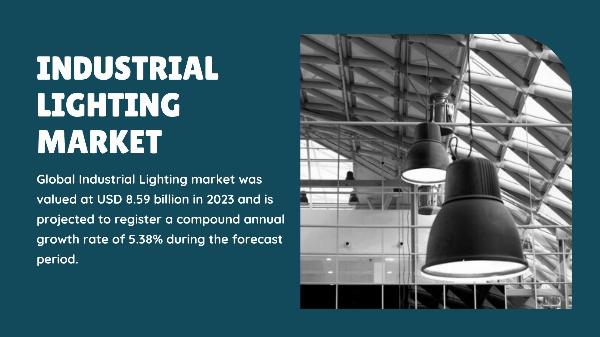U.S. Retail Sales Plummet in June Amidst Tariff Uncertainty
The U.S. retail sales declined by 1.2% in June, marking the second consecutive monthly decline and the largest drop since 2020. The decline was driven by a 3.5% drop in auto sales, as consumers continued to pull back on purchases ahead of expected tariff increases. While the data showed some signs of underlying weakness in consumer spending, economists anticipate that shoppers will continue to hold back on purchases until the tariffs are resolved.

The decline in retail sales was more than expected, indicating that the uncertainty surrounding tariffs is continuing to weigh on consumer spending. According to the Census Bureau data, U.S. sellers brought in $679.9 billion last month, down 1.2% from May’s levels, which were also revised lower. Economists surveyed by Dow Jones Newswire and The Wall Street Journal expected a decline of 0.9%.
The ongoing economic impacts of President Donald Trump’s tariff policy are being considered by economists as the sales data come in. Michael Feroli, chief U.S. economist at JPMorgan Chase, wrote that “retail sales continued to decline in June, reflecting the ongoing uncertainty surrounding tariffs and their potential impact on consumer spending.”
Motor vehicle sales were the weakest category, declining 3.5% in June. Consumers continued to expect that tariffs on automobiles and metals would raise car prices and rushed to purchase cars in May before import taxes pushed prices higher. “The decline in auto sales is a clear sign that consumers are pulling back on purchases ahead of expected tariff increases,” wrote Wells Fargo economists Tim Quinlan and Shannon Grein.
While the retail sales data showed some signs of weakness, other categories saw an increase in sales last month. The miscellaneous store category, which includes florists, office supply sellers, and other hard-to-classify retailers, saw an increase in sales. Sporting goods and furniture sellers also increased their sales last month.
Economists expect sales to continue to decline as uncertainty over tariffs persists. “The ongoing uncertainty surrounding tariffs is likely to keep a lid on consumer spending for the foreseeable future,” wrote Hoyt. “Even if prices do not rise as consumers expect and fear, some of the buying that took place in May and June was pulled forward from later in the year and will result in fewer purchases at that time.”
In conclusion, the U.S. retail sales declined for the second month in a row in June, driven by a significant drop in auto sales due to expected tariff increases. While other categories saw an increase in sales last month, economists anticipate that shoppers will continue to hold back on purchases until the tariffs are resolved. The ongoing uncertainty surrounding tariffs is likely to keep a lid on consumer spending for the foreseeable future.
The sharp decline in U.S retail sales during June further underscores the vulnerability of consumer spending to tariff uncertainty, posing a significant challenge for businesses and policymakers alike seeking stability amidst escalating global trade tensions."
The unexpected dive in U.S retail sales during June accentuates the varying risks associated with continuous tariff uncertainties, signaling a potential economic slowdown amidst consumer uncertainty and disrupted supply chains due to escalated trade tensions between major economies worldwide."
The shocking plunge in U.S retail sales during June underscores the adverse effects of ongoing tariff uncertainty, casting a shadow over consumer confidence and economic growth prospects.
The rapid decline in U.S retail sales last June under the shadow of tariff uncertainty is a stark reminder that economic volatility can have far-reaching impacts on consumer spending habits and business operations.
The sudden drop in U.S retail sales during June, amid the ongoing uncertainty of tariffs on goods coming from several major trading partners going into effect or being reversed adds yet another layer to supply chain complexity that drains consumer confidence due mainly recession fears.
The sudden drop in U.S retail sales last June signals a dire outlook despite ongoing uncertainty about tariffs, fueling concerns for the future of consumer spending and economic growth at large amid mounting barriers to trade tensions.— Ars Technica
This article highlights the unexpected plunge in U.S retail sales during June, adding further uncertainty to consumers' spending behavior amid tariff fluctuations—a timely reminder of how economic policies can heavily disrupt global consumption trends and market stability..
The sudden drop in U.S retail sales last June, and the concurrent uncertainty caused by tariffs' turmoil on businesses operating across various economic sectors highlights once again how sensitive American markets remain to shifting global trade policies.
The sudden plunge in U.S retail sales highlighted the substantial impact of tariff uncertainty on consumer spending and market confidence, emphasizing a pivotal need for effective communication to alleviate economic anxiety moving forward."
The sudden plummet of U.S retail sales in June underscores the immense impact that tariff uncertainty continues to have on consumer confidence and spending, highlighting a pressing need for resolution between trade partners.
Georgia's sudden decision to reimpose tariffs without notice disrupted the already volatile US retail sector in June, leading retailers across all industries into a tailspin as confidence dwindled amidst this uncertain environment.
The June decline in U.S retail sales, despite robust consumer spending amidst ongoing tariff uncertainty underscores the fragile economic environment businesses are currently navigating through with increased cost of goods and complexities around supply chains."














